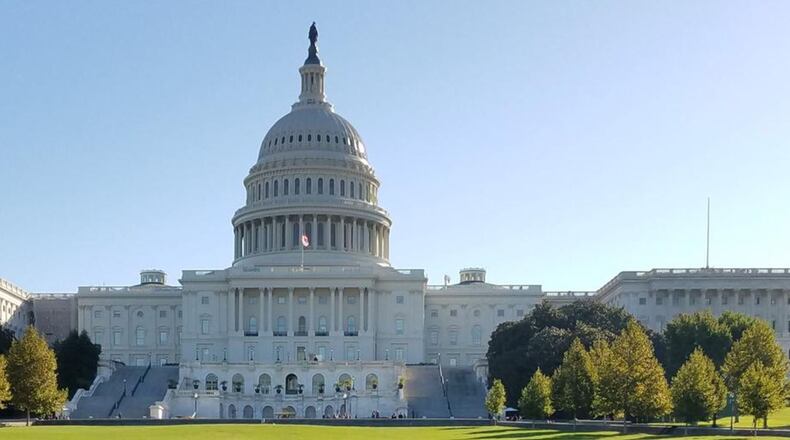A day after Senate approval of a budget outline for 2018 that authorizes expedited work on a tax reform plan- without the threat of a Senate filibuster - House GOP leaders set the table for a vote next week on the budget measure, instead of engaging in House-Senate negotiations that could take several weeks, as Republicans look to generate more momentum for the first major tax reforms since 1986.
Friday afternoon, House GOP leaders signaled their plan to simply accept the budget plan passed 51-49 by the Senate, setting a Tuesday meeting of the House Rules Committee, which sets the ground rules for bills on the floor of the House.
"We want Americans to wake up in the new year with a new tax code, one that is simple and fair," said House Speaker Paul Ryan. "Now it is time to meet this moment and deliver real relief to hardworking people."
Credit: Jamie Dupree
Credit: Jamie Dupree
Approval of the Senate-passed plan would allow tax-writing committees in both the House and Senate to get to work on the actual details of tax reform; what's been released so far is an outline, but not the fine print.
"This is another important milestone for tax reform, and sets the stage for us to pass major tax cuts that will deliver more jobs and higher wages for hardworking Americans all over the country," said White House Press Secretary Sarah Huckabee Sanders.
One key conservative GOP group in the House - the Republican Study Committee quickly got in line behind the Senate budget plan, even though "the Senate ignored the House's attempt to balance the budget and reform mandatory entitlement programs.", the Republican Study Committee remains committed to fulfilling our pledge of fiscal responsibility.
In a statement, RSC chief Rep. Mark Walker (R-NC) said the group supports the idea of moving quickly to tax reform - but they were also promised votes on bills to reduce spending.
"We are also grateful for the commitment for a vote on important fiscal legislation in the form of a Balanced Budget Amendment, the Default Prevention Act, or some other deficit-reducing legislation," Walker said.
As for Democrats, some feel like they are being set up by the GOP, predicting that Republicans will unveil their tax reform bill, and then demand a vote on it days later.
"I am perfectly willing to negotiate," said Sen. Clare McCaskill (D-MO). "I can't do it in a vacuum."
"It doesn't work that way," McCaskill told reporters. "Why can't we have a bill?"
When you look back at the 1986 Tax Reform Act - that took months to make its way through the House and Senate, and then a conference committee for final negotiations.
Need some weekend reading? Here is the link to the explanation of the 1986 Tax Reform Act - it's only a little under 1,400 pages.
It's a gentle reminder that if you do 'real' tax reform - it is a very complicated endeavor.
About the Author
The Latest
Featured




